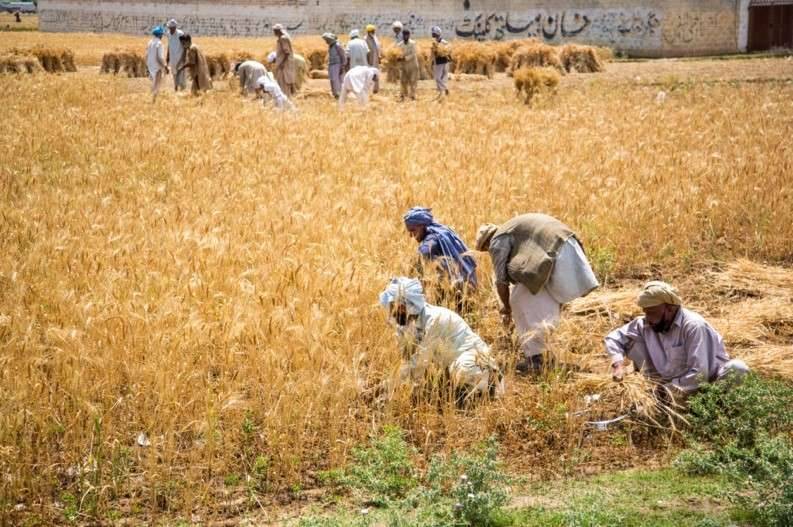Kisan Ittehad Chairman Khalid Hussain Bath has issued a stern warning to the government, declaring that farmers will launch a hunger strike in Islamabad if the wheat procurement price is not urgently fixed, according to ARY News.
Addressing a press conference, Bath criticized the government’s approach, especially following Chief Minister Maryam Nawaz’s announcement, which, he claims, triggered a sharp drop in wheat prices — falling an extra Rs 400 per 40kg in the market.
Third-Party Procurement Sparks Farmer Outrage
Bath raised serious concerns over the newly introduced third-party procurement model, calling it unsuitable for Punjab’s farmers. “This is a European-style system, but most local farmers aren’t even familiar with modern storage facilities,” he argued.
He urged CM Maryam Nawaz to engage directly with farmers rather than rely solely on bureaucratic consultations, warning that the new procurement and storage system could open the door to corruption and exploitation.
READ MORE: Sindh Government Imposes Strict Ban on Fine Fishing Nets to Protect Marine Ecosystem
Wheat Market Collapse Imminent Without Fixed Support Price
Highlighting that 12.5 million acres of Punjab’s farmland are currently dedicated to wheat cultivation, Bath warned that the absence of a fixed wheat price would cause the market to crash — with the real beneficiaries being mafias rather than farmers.
He also highlighted the farmers’ financial struggles, stating, “If wheat isn’t purchased immediately, growers won’t have resources to cultivate the next crop, which will lead to a severe shortage, forcing Pakistan to rely on wheat imports.”
CM Announces Wheat Support Package Amid Growing Protests
In an effort to ease farmer concerns, the Punjab government recently unveiled a Rs 15 billion Wheat Support Package under the Kisan Card initiative. The package includes:
-
Direct cash assistance to wheat growers.
-
Waivers on irrigation fees and fixed agricultural taxes for 2025.
-
Access to free four-month Electronic Warehouse Receipt (EWR) storage, aimed at shielding farmers from market instability and climate-related risks.
Despite the announcement, farmer representatives argue that without an immediate fix for the procurement price, the agriculture sector could face long-term damage.



